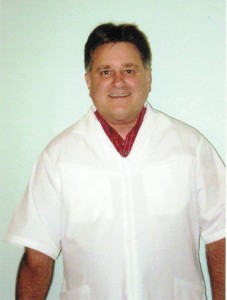
Polycystic Ovary Syndrome (PCOS) is the result of a metabolic abnormality that results in insulin resistance. All women with this condition have irregular, abnormal or absent menstruation, and eighty percent of women diagnosed with PCOS have polycystic ovaries. It is estimated that 10% of all women of reproductive age suffer with PCOS. This condition can and does continue even after menopause.
Hyperandrogenism (excess testosterone and DHEA) and Insulin Resistance (the production of more insulin than usual to maintain normal blood sugar levels) are abnormal results of an endocrine system’s delicate balance and can be a lifelong condition for many women. PCOS can present in the teen years, and can persist through and beyond the reproductive years.
PCOS is characterized by irregular, abnormal, or absent menstruation, excess amounts of body hair, excessive body weight, and decreased fertility. Other symptoms include hair loss (male pattern baldness), acne, obesity, infertility and/or reduced fertility. Not all women have exactly the same symptoms. So how do we manage PCOS?
Women with PCOS always have low progesterone levels. Progesterone is created by the ovaries at the time of ovulation. A woman can have a period and still not be ovulating. If she does not ovulate, she will not create the progesterone necessary to remove the fiber and lining that has been stored. This repeated storing without cleaning can eventually result in fibrocystic breast disease, endometriosis, uterine cysts, bloating, weight gain, and depression.
The best solution is to begin supplementing with progesterone, natural bio-identical progesterone, available from your compounding pharmacist and requiring a prescription. We recommend bio-identical progesterone cream which has better availability in the tissue beds where deficiency symptoms arise. We can, however, achieve similar results with progesterone capsules by adjusting the dosage. Progesterone caps also have a sometimes desired effect of producing drowsiness in many women, which is useful if a patient is suffering with sleep disruptions in addition to PCOS.
Since hormone imbalance disrupts a woman’s delicate balance of the endocrine system, progesterone supplementation is not always enough to address insulin resistance. Excess insulin causes the ovaries to produce excess testosterone, which can prevent ovulation and can increase the conversion of testosterone into estrogen, which effects weight gain and the formation of ovarian cysts. Untreated insulin resistance can increase the risk of heart disease and is a known precursor to diabetes. These risks increase as a woman ages. Insulin resistance can be managed with the addition of the prescription drug Metformin if bio-identical progesterone alone does not control it.
Although there is no single cure for PCOS, it can be managed. Come see us at VanMol pharmacy and discuss your concerns and together with you and your physician can manage your PCOS.









